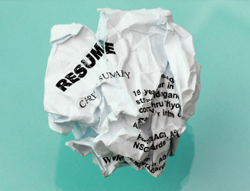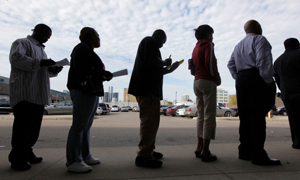How the Recent U.S. Credit Downgrade Can Affect Job Hiring
19 July 2011

Just like that, the United States’ credit rating has dropped from AAA to AA+, according to Standard and Poor’s. Though AA+ isn’t bad at all, since it means that the country still has a strong capability to meet its financial obligations, nothing still beats triple A, and a downgrade isn’t really something you’d expect from a superpower such as America.
Needless to say, a downgrade can be a prelude to a more negative economic outlook, worse a double-dip recession. This may also mean that other credit rating agencies such as Fitch Group and Moody’s may follow suit, further propelling the country down.
Since all factors in economics are interdependent, you can surely expect some changes in the way businesses work and hire workers.
Though a lot of reports suggest that thousands of people have been actually hired and that there’s a reduction in unemployment claims, many things could happen between today and tomorrow. These include the following scenarios:
1. Companies may freeze hiring.
They may try to implement the “wait and see” attitude. Although many organizations won’t terminate thier employees, they may stop getting new hires until they can surely feel that the economy starts to pick up.
2. Businesses may become choosy.
Firms across the US will try their best to reduce their overhead expenditures as much as possible. One of the possible steps they might take is to avoid hiring fresh graduates or those who lack experience. Training can cost a lot of money for companies, especially for start-ups.
3. Enterprises may decide to look for workers elsewhere.
To be more specific, they may opt to outsource a lot of jobs to telecommute or home-based workers (both local and international). This can be both a good and a bad thing for you. It’s ideal since you’ll have more time at home. You can make the most out of your utilities, such as your phone and Internet connection, as well as spend less on outdoor expenses. However, home-based jobs may also make things unstable. Unless you have a contract from the company, the business owner has the prerogative to kick you out or lay you off even without the typical 30 days’ notice.
4. Organizations may lay off employees.
This is something that should be avoided. Businesses should continue to operate in order to keep the economy going. However, if things take a much worst turn, such as getting more downgrades from other agencies, companies may simply decide to lay off employees while it’s still early. It also doesn’t help that Europe, one of America’s biggest markets for exports and imports, is also experiencing its own economic troubles.
5. Companies may do nothing at all.
A common effect of a downgrade is an increase in interest rates. This way, the government can gather more money to pay off debts. Fortunately, the Federal Reserves has already announced that it’s going to keep interest rates low for the next two years. If businesses are happy with that, or if they believe they have good leaders and committed government agencies, they may just continue on with their normal operations, with hardly any changes.
And yet we have many great JOBS with most solid Employers!




